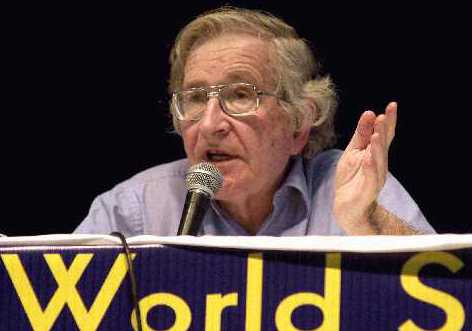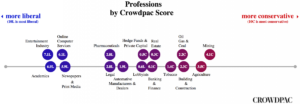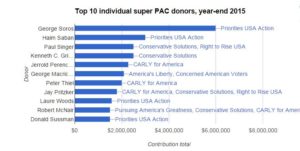Noam Chomsky: The Cleverest Zionist

Noam Chomsky is one of the most influential intellectuals in the world and is indeed probably the single most influential Left-wing intellectual around today. His university, the Massachusetts Institute of Technology, once boasted that Chomsky was the most-cited living person in the Arts and Humanities citation index between 1980 and 1992. Indeed, he was the only living author in the top ten, being quoted beside Shakespeare, Plato, and the Bible. Chomsky has largely maintained his academic influence, being heavily quoted in books in the humanities.
The elderly Chomsky is something of a saint for the far-Left. Thus they have been alarmed at a strange, under-reported reality: Chomsky the anti-nationalist and anti-imperialist voice is, when all is said and done, a Zionist supporter of the ethnically-Jewish state of Israel.
The Boycott-Divestment-Sanctions movement (BDS) has been rapidly expanding in Anglo-American universities with the growth of non-White student bodies who see Israel as a racist state. Yet, BDS’s members are constantly astounded to find Chomsky personally undermining their opposition to Israel’s oppression of the Palestinians. A BDS activist recently summarized Chomsky’s positions on Israel to me:
- Chomsky opposes the cultural boycott of Israel and argues that BDS, rather than targeting Israel, should first of all focus on the United States as a backer of Israel. (As though the two were mutually exclusive . . .).
- Chomsky denies the Israel Lobby has been a critical influence on U.S. foreign policy in the Middle East, arguing instead (rather ludicrously) that U.S. support is based on imperial interests, notoriously attacking Stephen Walt and John Mearsheimer’s breakthrough book, and arguing that the Israel Lobby is no more influential than, say, the tobacco lobby. Chomsky cites as evidence the fact that the American-Israel Political Action Committee (AIPAC) failed to block President Barack Obama’s deal with Iran. But this obviously misses the point: AIPAC and the neoconservatives are the hard edge of the Israel Lobby, but the latter includes the more subtle liberal Zionists which Democratic presidential candidates (particularly the Clintons) have been massively financially dependent on for decades (hence liberal U.S. administrations’ support for the charade that is the “peace process,” under the cover of which settlement has steadily continued).
- Chomsky is opposed to the right of return for descendants of the Palestinian refugees who were expelled from their lands in the 1948 Israeli-Arab War. Amazingly, Chomsky instead supports the right of return only for those Palestinians who were themselves expelled, a generation which is so old it is on the verge of dying off! This position, apparently based on “pragmatism” and hair-splitting legalism, would maintain Israel’s Jewish ethnic majority.
- Chomsky supports the “two-state solution” as the only “practical” one. This is again rather strange: on all other topics, Chomsky’s far-Left politics have never been constrained by issues of “practicality” or mainstream elite appeal. Furthermore, in any case, a two-state solution is perfectly impossible so long as there are over 500,000 settlers in East Jerusalem and the West Bank.
Chomsky, in effect, is as much of a Zionist as Benyamin Netanyahu. But Chomsky is a far better and more subtle advocate of an ethnostate for his people, undermining anti-Zionism where it would otherwise be most likely to flourish: the far-Left! (Netanyahu, whose job is to represent the very tribal Jews of Israel, is a bit of an embarrassment for the liberals Jews of the West and in particular of America. Overt racism, ultra-nationalism, and trying to blame the holocaust on some Palestinian all undermine the efforts of the liberal Zionists in the West, who would rather preach “anti-racism” in Europe and America [incidentally wrecking our nations with mass immigration/multiculturalism], all the while quietly supporting Israel as a Jewish ethno-state.)
Chomsky has increasingly come into conflict with Israeli leftists, notably in a book with Ilan Pappé because they are open to a “one-state solution” by creating a binational Jewish-Palestinian polity, with Jews as a minority. Incidentally, it is quite amusing to watch sincere Left-wing anti-Zionists gyrating to explain why Western media and governments are so inexplicably pro-Israel (“Zionist,” “Israelized”) without coming across as “anti-Semitic.”
Just who is Noam Chomsky? He is mainly known for his systematic opposition to “imperialist” U.S. foreign policy and to “corporate power” within the United States. This includes a claim that the mass media essentially dominates public opinion (especially his book Manufacturing Consent), its elite controllers carefully tuning the message in the service of U.S. imperialist and corporate interests.
This critique of Western democracy is fine as far as it goes, although it has probably been better made elsewhere (e.g. Jacques Ellul’s classic study Propaganda: The Formation of Men’s Attitudes). But Chomsky, who loves to pose as the dissident courageously fighting the ruling establishment, never quite explains why his views are so popular in academia and a significant fringe of the mainstream media. He suffers no widespread demonization comparable to what European nationalists and White advocates face.
Chomsky’s critique of media power can be easily completed and made relatively coherent if one points out two simple facts. Firstly, the academic, media and entertainment establishment in the United States lean massively towards the political left, as evidenced by campaign contributions:

Secondly, Jews are massively over-represented in this same academic, media, and entertainment establishment. This includes well-known domination of Hollywood, sometimes outnumbering White gentiles in the Ivy Leagues, and ownership or management of much of the elite media, notably the flagship New York Times.

Top donors to U.S. presidential election.
Of course, Right-wingers who use Chomskyite reasoning to argue that American media have a Jewish ethnic bias and a left-wing ideological bias will be accused of “tin foil” conspiracy theorizing by Leftists. (I know, I’ve tried.) Instead, Leftists will claim that the media conspires to manipulate the news and the public only for “corporate” and “imperialist” goals, with Jewish identity and left-wing ideology playing no role.
To correct Chomsky: He is not a rebel against the ruling elite. Rather, the gentle skirmishes between Chomsky and the New York Times represent debate between two different sections of the same Judeo-liberal establishment. Chomsky represents the academic wing which, mostly speaking to fellow academics and to Left-wing students, can be more radical. The New York Times represents the ruling wing, with readers among both the political class and the general public, and hence needs to present something a bit more mainstream and needs to take some account for the realities of American government.
And that would normally be all I have to say about Chomsky. I don’t waste much time with him because I have never found his particular brand of kumbaya internationalist anarcho-communism particularly persuasive.[1] Chomsky suggests academics and students are going to impotently protest and nag their way to a better world, which strikes me as a conceited scam.
Chomsky’s position on Israel however, reveals him to be the most subtle Zionist, playing the far-Left guru, actually being just another (conscious or not) hypocritical ethnic activist. I have previously hypothesized:
Individual Jewish intellectuals tend to adopt a personal ideology, generally in their younger years and for life, which is a conscious or unconscious rationalization of their ethnic interests. However, it is also true that particular Jewish intellectuals will often consistently pursue and enforce their ideology throughout their lifetime, either for reasons of personal prestige and interest or sheer pigheadedness, even to the point of self-destructiveness to Jews and Jewish interests. This, I believe, may explain the not uncommon phenomenon of liberal/leftist Jews that are relatively critical of Israel and open to miscegenation.
This certainly seems to apply to Chomsky. He was born in 1928 to Socialist Ukrainian Jewish immigrants to America and was taught Hebrew growing up. Young Chomsky was a self-styled “cultural Zionist” and even spent six weeks working on a Kibbutz in Israel. Then, from his particular vantage point, he settled into (pseudo-)Jew-blind, far-Left anarcho-communism, all the while quietly supporting the principle of a Jewish ethnostate, using a battery of hair-splitting, sophistic arguments I have never seen him use in any other context. All this fits perfectly well with Jewish ethnic interests.
So now Chomsky, having solidified his particular ethnic rationalization-as-worldview as an American Jew growing up in the 1940s and 1950s, is clashing somewhat with a new generation.
In all this, I am struck at how similar the outcome of Chomsky’s anarcho-communist political thought is to Paul Krugman’s establishmentarian liberalism, despite their apparent differences. In both cases:
- Jewish privilege in America (and the West in general) is un-criticizable.
- Both support or tolerate a Jewish ethnostate in the Middle East.
- Both support the movement towards making Western nations “multiculturalized” through mass immigration and the traditional White majorities reduced to minorityhood and blended out of existence.
Funny how that always works out!
One of Chomsky’s foundational moral arguments is the following, justifying his systematic criticism of the U.S. government (as opposed to foreign powers):
My own concern is primarily the terror and violence carried out by my own state, for two reasons. For one thing, because it happens to be the larger component of international violence. But also for a much more important reason than that: namely, I can do something about it. So even if the U.S. was responsible for 2% of the violence in the world instead of the majority of it, it would be that 2% I would be primarily responsible for. And that is a simple ethical judgment. That is, the ethical value of one’s actions depends on their anticipated and predictable consequences. It is very easy to denounce the atrocities of someone else. That has about as much ethical value as denouncing atrocities that took place in the 18th century.
Not bad, Professor Chomsky. But why limit yourself to your own government? Governments after all, are only the agents of elites. Why don’t we criticize the most privileged and influential ethnic elite in the U.S.? If, in public discourse, people oppose and criticize supposed White privilege and ethnocentrism, then one must also criticize far greater Jewish privilege and ethnocentrism. Following his own logic, Chomsky should have been consistent and, perhaps like Gilad Atzmon, actually criticized the oligarchs and elites in his own group who, as a group, have held so much sway over American culture and foreign policy.
So much for Chomsky. He won’t be read or remembered (except perhaps as a warning) in our ethno-states.
[1]Critiques of this kind of utopian egalitarian demagoguery need to be more widely known. Winston Churchill famously denounced communism as “the reconstitution of society on the basis of arrested development, of envious malevolence, and impossible equality.”
Steven Sailer once summed up the anti-Western left-wing historiography with his trademark wit: “Western history has been distorted by the politically correct to emphasize its dog-bites-man aspects—its episodes of ethnocentrism and inequality, which are universals—and ignore its man-bites-dog accomplishments, of which citizenism is one of the most important.”
Arthur Schopenhauer denounced the eternal utopian rabble-rousers with the following:
People have always been very discontented with governments, laws, and public institutions; for the most part, however, this has been only because they have been ready to blame them for the wretchedness which pertains to human existence as such. But this misrepresentation has never been put forward in more deceitful and impudent a fashion than it is by the demagogues of the present day. As enemies of Christianity, they are optimists: And according to them the world is “an end in itself,” and thus in its natural constitution an altogether splendid structure, a regular abode of bliss. The colossal evil of the world which cries against this idea they attribute entirely to governments: If these would only do their duty there would be Heaven on earth, i.e. we could all, without work or effort, cram ourselves, swill, propagate, and drop dead – for this is a paraphrase of their “end in itself” and the goal of the “unending progress of mankind” which in pompous phrases they never weary of proclaiming. (Essays & Aphorisms, [London: Penguin, 2004], 154)
These elementary points having been made, you can flush your Noam Chomsky, your Howard Zinn, your feminist/critical race/postcolonialist studies, etc, etc, down the toilet.





Comments are closed.